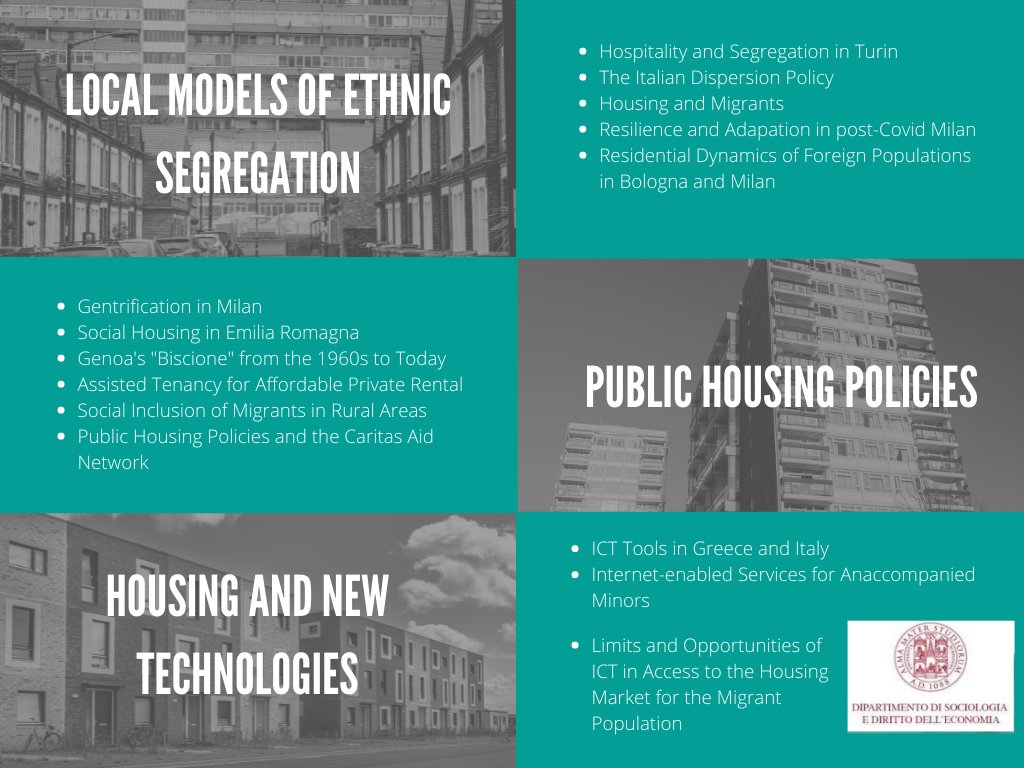Rebuild project was presented in the international conference “Multidimensional housing deprivation – Local dynamics of inequality, policies and challenges for the future” organized by MICADO H2020 project and Hosted by the Department of Sociology and Business Law, University of Bologna. The Rebuild paper “Beyond emergency Housing and social exclusion. The Integration of territorial actions and good practices into ICT tools: Greece and Italy” authored by Giulia M. Foresti and Anna Lauricella, CIDAS, Dimitris Demertzis, OMNES, Greece and Alessandro Pollini and Alessandro Caforio, UNINETTUNO.
As the authors remark, “in this contribution we want to share the specificity of two particular territories, based in Greece and in Italy, where two realities that deal with the welcoming of migrants want to face also with the housing emergency by reasoning and implementing actions and good practices that can go beyond the offer of accommodation facilities. The central issue is the inclusion of third-country nationals in the urban and territorial context, in which the housing issue plays a key role. In order to facilitate a process of effective access to rights by third countries nationals, the actions implemented will be presented also putting them in connection with a new generation ICT tool: the REBUILD App is being developed thanks to a project financed by the H2020 European funds, which sees an international partnership headed by UNINETTUNO with the participation of UNESCO. The accessibility of rights thanks to the use of an APP, intended as a digital companion able to support the migrant in the new context of life, can also become an added value under various points of view as the physical distance, the privacy, the greater number of services that can be reached”.

About the International Conference:
More than a century has passed since housing shortages, primarily affecting workers migrating from the countryside and rural areas to urban areas, were considered the social issue of the day.
Increasing the availability of housing and ensuring home ownership seemed to be appropriate responses, but even today, in a country like Italy where home ownership is the predominant form of entitlement, the housing issue is far from resolved and is subject to dynamics, trends and structural changes of various kinds.
The issue of housing is thus today transversal and embraces issues that are only apparently distant from each other:
- urban development and land use, sprawl, gentrification, tourism, but also the impact that urban regeneration and redevelopment programmes have on the ground and on the people who live there;
- poverty and social hardship, conditions that refer primarily to access to and the right to housing, but also to forms of public intervention, informal housing and affordability;
- inequalities and discrimination in access to housing, as well as the spatial distribution of populations, concentration and segregation, marginalisation mechanisms and processes of peripheralisation of the most vulnerable sections of the population;
- the role of public players, particularly with regard to their gradual withdrawal from the housing policy sector and the residualisation of housing welfare, but also with regard to the impact of the various housing policies introduced at local and national level.
View more details for the Conference here >>>>>>>>>
Download the full Programme here >>>>>>>>>>>>
Explore the book of abstracts here>>>>>>>>>>> (Rebuild paper, page 31)
Live presentation here >>>>>>> (Rebuild panel #3-Housing and New Technologies @2.50’)